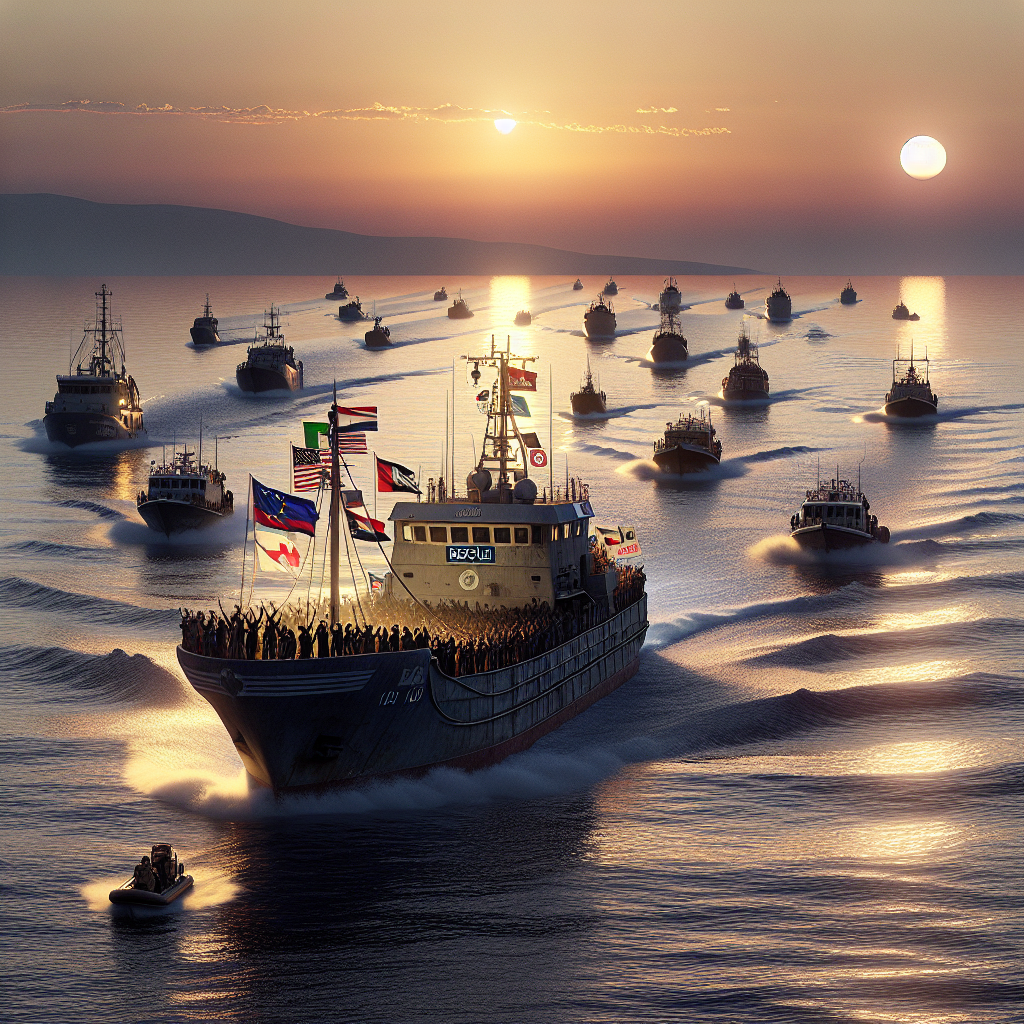Listen up, the truth’s about to drop, and I don’t sugarcoat.
Some stories come with a brass band and others slip past the velvet curtain. But this one? This one’s coming in like a ship with a mission and a message sharp enough to punch through a blockade: The Gaza Aid Flotilla is back, cutting across the Mediterranean waves like a political thunderclap. And sitting right in its defiant belly is the Madleen—part vessel, part statement, and all fire.
Yasemin Acar, perched aboard the floating powder keg, told the world they’re aiming squarely for Gaza’s “territorial waters.” Translation? They’re challenging the de facto aquatic no-go zone that Israel says is off-limits, but international law says… well, that’s the million-dollar gray area, isn’t it?
Now, before the tweed-jacketed pundits and Twitter’s armchair generals stumble over each other yelling, “Provocation!” let’s call this what it is: a shrewd, symbolic middle finger to a region held in sustained grief. The flotilla knows what it’s doing—it’s not about food, not just about medicine. It’s about forcing the global eye to stop looking away.
Because Gaza isn’t just under siege—it’s been politically embalmed. Sealed off. Sanitized in the headlines. And when the world’s great powers do mention it, they talk in passive verbs and abstract tragedies, like humanity checked its soul at the UN cloakroom. But this flotilla? It’s not speaking in diplomatic pentameter. It’s yelling.
Let’s not forget the last time a similar convoy tried to crack the blockade. The 2010 Mavi Marmara raid didn’t just spill blood—it slapped the geopolitics off the conference tables in Brussels, Ankara, and Washington. Nine dead, outrage inflamed across continents like a lit match on oil-soaked maps.
So here we are again. But this time, the mission comes post-October 7th—a moment that torched whatever remained of the region’s paper-thin diplomatic poker face. The gloves are off, and diplomatic language has turned into whispered apologies for inaction. Meanwhile, civilians in Gaza are getting bombed into the Stone Age under what’s being gently called a “response.” Let’s call it what it is: collective punishment delivered with a press release and plausible deniability.
Now, is this flotilla naive? Maybe. But courage often dresses like naivety in the eyes of cynics. And whether or not the Madleen makes it to the edge of Gaza’s waters, the ripples are well underway. The UN’s already “monitoring.” Israel’s already “warning.” The media bureaucrats who kept Gaza as the unseen blip between Tel Aviv’s cocktail parties and Cairo’s policy dinners? They’re scrambling.
And that, my friends, is a checkmate of narrative warfare.
But let’s zoom out, because this isn’t just about Israel or Gaza—it’s about a global psyche that has grown allergic to real confrontation with injustice. When western democracies send lectures instead of lifelines and when they praise “resilience” instead of enforcing accountability, they’ve effectively voted for managed hypocrisy.
So here we are. The Madleen’s steel hull may get intercepted, but the message? That’s already breached the blockade. And let me be clear—if Israel chooses force again, it won’t just be dealing with legal complaints and diplomatic tuts. No, no. It’ll be facing a flashbang of global outrage in an era when the patience for censorship, siege, and selective empathy is running on fumes.
Game’s on. And whether you support the flotilla, question its tactics, or just live for the geopolitical spectacle—know this: narratives are like ships. Once launched, they’re hell to stop.
Brace for impact.
– Mr. 47







